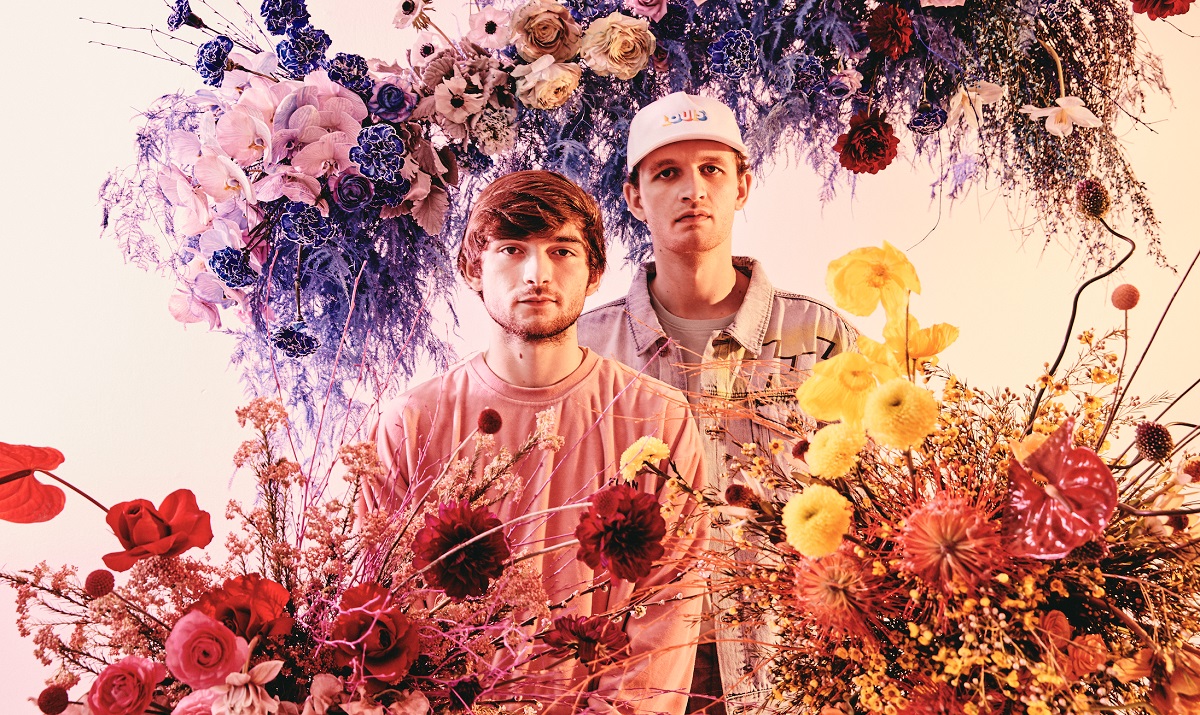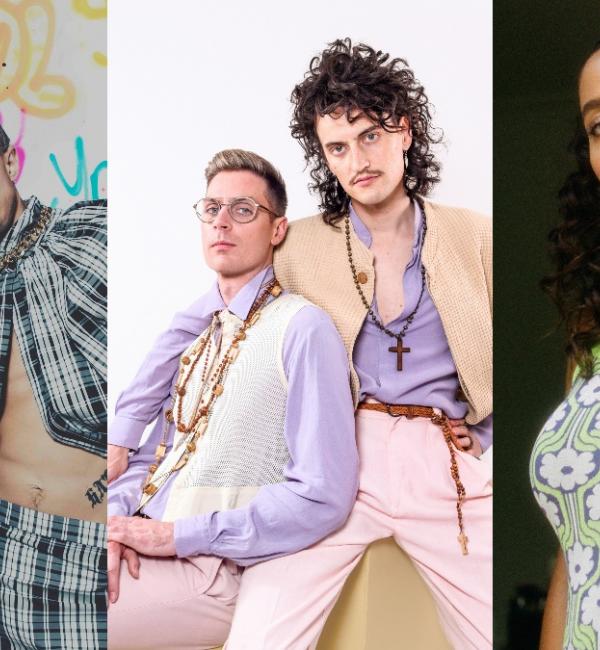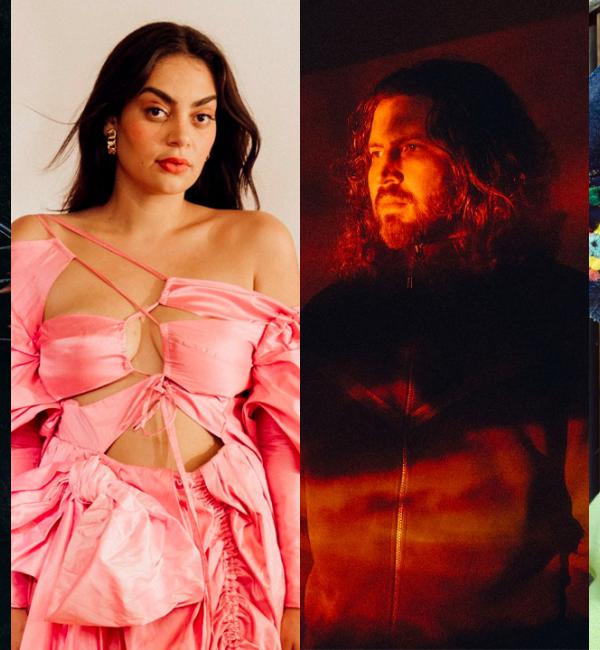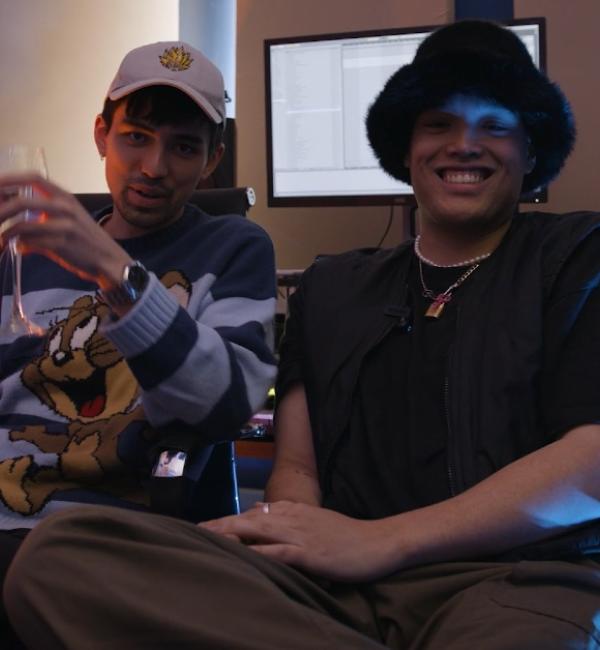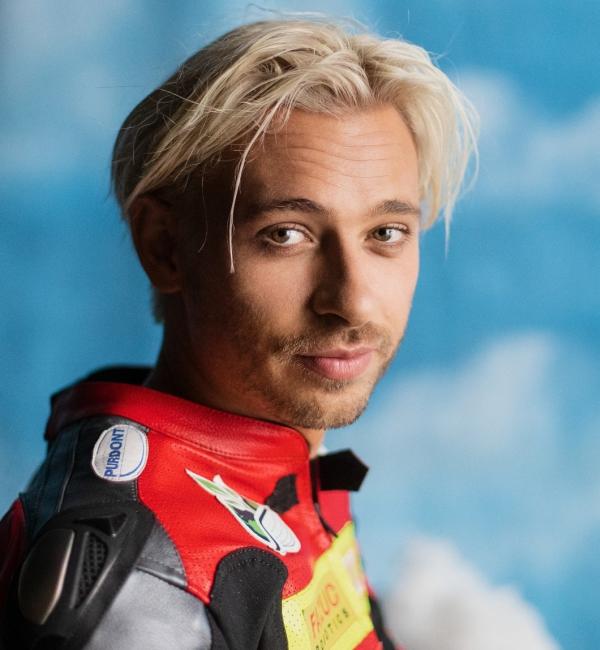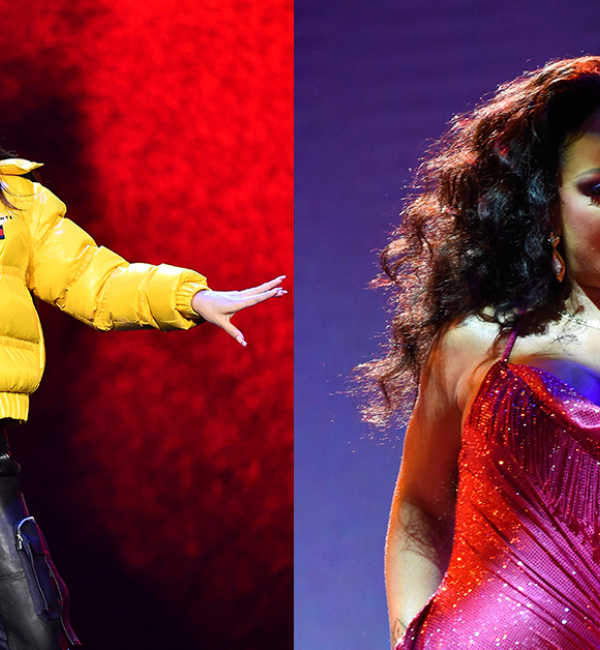
American electronic duo Louis The Child have just dropped their debut album, Here For Now, and it's been a long time coming. Boasting features from the likes of Foster The People's Mark Foster and Australian singer Vera Blue, the 14-track album is the result of a lot of hard work from members Robby Hauldren and Freddy Kennett - and sees them nailing a variety of sounds, all the while showcasing their flair for genreless production.
We spoke to Robby and Freddy from Louis The Child about their year so far, as well as some of the stories from collaborating with other artists on Here For Now - as well as where they look for inspiration when they're looking to write their next track.
Cool Accidents: Firstly, how are you both going?
Louis The Child: Doing well! We're enjoying the quarantine. We finished our album right before the quarantine started. We've been getting creative and practicing piano and drums and vocals and producing all that we want and it's nice. Reading a bunch.
How have you managed to turn quarantine into a creative time for yourselves?
Freddy: It comes in waves. You have to be charged with inspiration. That comes from your surroundings. So we're always listening to new music, reading and trying to find new art, artists and clothing. Even visual inspiration can help me make some music.
I've been listening to a bunch of different countries' top charts. There's some Brazilian music that's been really inspiring to me. Finding a new source and constantly having new input that's good and you like is a good way to stay inspired. I've been trying to read as much as I can so that writing-wise, I'm inspired too. Reading poetry. Reading psychology or self-help.
When you're reading a book, whether it's fiction, nonfiction, whatever, will you find something that will start to inspire lyrics for you or is it more about sounds that will come from reading something?
F: A lot of it's nonfiction and ideas that it'll give me creatively will inspire me. This book Atomic Habits has inspired me to practice everything everyday and have it be a habit. Not just be something I'm doing here and there, but really get structured and get good at all these minute tasks.
I'll read a bunch and then be inspired by some of it. A day later I'll write something that is on that topic but not necessarily directly inspired by that, or I'll just be thinking about those topics.
Robby: It's more information you can tap into the next time that you write. So whether it's immediately you're writing something that's inspired from it, or weeks later, you're thinking back on that, it's just it's having more things to draw from.
I wanted to speak about Here For Now. Listening to it, I very much get a sense of freedom when listening to the different sounds you've used. While you were writing the album, given that it was completed just before quarantine and everything turned on its head, what was your mindset around writing it, the sounds that you were using, and how did you want it to sound overall?
R: We had a pretty precise concept that we wanted to write about and subjects that we wanted to write about. With anything we do, we want it to sound fresh and exciting. We don't ever want to write a whole project that sounds like the same thing over and over again. Our whole career, if you look at any of our EPs or any projects we've put out, they've all been very diverse, and I think that really just speaks to our general taste in music.
I think the taste of a lot of people our age, we grew up with access to the iTunes store. We grew up with crazy access to music, so a part of our identity is wanting to make all different types of stuff. Especially in the process of writing this, after we wrote Every Color with Foster The People, going over to Mark Foster's place he had a ton of analog toys.
Whether it was synths or even just random little toys, he was like 'this makes claps, hit this with a drumstick and turn these knobs' and it makes weird sounds after that. We really got inspired by that, like 'okay, what stuff can we use outside of the computer'? Before we started really writing the album Freddie bought an NPC. That really found its way into a lot of the album. A lot of the album is stuff that is not so much programmed in but a lot more of us physically playing the stuff and a lot of things came from jamming on stuff, which wasn't really the process before that.
F: On the last tour we went on I was playing a lot of piano live and so once I got back in the studio, I was playing a bunch more piano on what we were recording and finishing some of them with piano parts and piano kind of transitions and intros or outros. Definitely using more piano, trying to use the NPC more and play the beats That's so much fun for sure, actually having all your samples loaded on there and then switching between them and getting the right kit and then actually playing it instead of sitting on the computer and just nerding out.
You touched on working with Foster The People, and on the album, you worked with a range of people from different genres. How did you go about deciding who would fit what song, and were there any surprises for people that you might have thought worked on one song but ends up working on another?
R: Even with the Mark Foster situation, we came to him and played him a bunch of ideas that we had. One of our songs Don't Mind that's on the project was still an idea. When we went and met up with him I went into that day thinking 'I think he's really going to like Don't Mind, I think that one he's gonna want to do something with that. I think he's gonna love that'. And we played him that and a bunch of other stuff and he loved the idea we had started to Every Color and was like, 'let's do something to this, let's build this out and write something to this'.
In general, we always try and work with artists that we admire and artists whose music we really love, so I guess it's pretty easy to pick the people we want to collaborate with because it's just people that we're like, 'yo, I love this person, or I'm obsessed with this album by this person. Let's make something with them'. If I love it, then there's definitely something there. There's some sort of connection.
I wanted to ask about Scooter's Intro. It features a recording of a radio DJ, can you tell me what the significance of having that opening the album is?
R: You're tuning in to Scooter debuting the album for the world. He's a radio host who doesn't really tell you exactly where he is. It's off the coast of elsewhere. He embodies a lot of what the idea of Here For Now in that he really enjoys his life and really loves every day, even just the gift of being alive.
He's not a huge radio host, he broadcasts on his own personal station to probably not that many people. But, the fact that he even gets to broadcast is the coolest thing for him and brings him so much joy.
We love having different characters and we do all these little like, bits and stuff together. It felt natural to include Scooter in the intro to the album. It was just a fun thing.
You've previously worked with a couple of Australian artists in Wafia and Vera Blue in the past. How did you get onto those artists and then link up with them?
R: With Wafia we got connected with her through one of my old roommates. He had been like telling us for so long about how we needed to make some stuff with Wafia and I had heard some music and I thought her voice is gorgeous. Better Not just came together and so naturally and in such an amazing way.
With Vera Blue, we had already written the song and we just loved her voice and it was awesome that she was down to make it. It's such a different kind of process for us - we still haven't met her physically. To have sent the song back and forth across different time zones and countries was a different process for us. I'm so happy we have that song with her.
Was collaborating with someone over the internet something that came naturally to you or was it something you slowly got used to?
F: I definitely feel like sending across the internet was always part of our process as we were growing up, but then we just kind of started to meet people in Chicago. The first people we met, or at least I met in the industry when I was just getting started were all across the country, so we would send things. We definitely like being in the room that more, but it's also easy to send files back and forth to everyone. Whatever it gets it done is great.
I wanted to speak about your desire to push back against this idea of genre. It comes through with every sound on the album and every collaboration. When you were writing the album was that something that you consciously kept in mind?
F: We got used to that way of creating where it's like 'so today what do we want to make? What tempo do we want to make'? It doesn't have to be this or that we're not like 'let's make a song with this genre' or not really referencing things and trying to make something exactly like that ever.
R: Sometimes, the artists you're collaborating with might come in and you both start playing songs that you're both listening to lately, they play something like, 'whoa, I hadn't thought about a song that does this, or does that'. I think just constantly listening to new stuff and being exposed to new stuff keeps you wanting to make fresh things.
What are you hoping fans learn about both you as individuals and Louis The Child as a group from listening to Here For Now?
R: I hope that they understand that we're not just trying to just make songs and put them out and become the biggest thing in the world. We really have a message that we're trying to get across and, and we really want people to listen deeper than the surface level of the songs, listen to the lyrics, really dive into the project.
It's not just a collection of whatever we just made over the last couple of years. There are things to be heard and things to be understood from it. I want people to understand that the type of artists we are, we're really trying to get messages across and really trying to connect with people through our ideas.
Finally, given everything that is going on in the world, what are the plans for the rest of the year?
LTC: Definitely expect more music because we're not going to be on the road. We're home making a ton of music. The album is by no means 'cool, we released the album then we go quiet for a while.' To us, It feels like the start of a run of releasing lots of different music. We already have some things planned.
